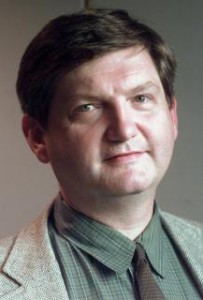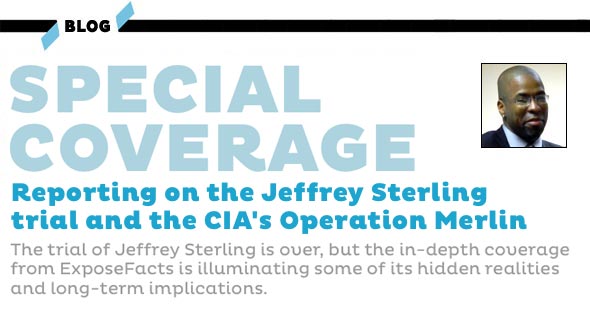
Washington reporter James Risen for the New York Times is shown in this New York Times Company photo from September 15, 1998 and released on December 16, 2014.
As Josh Gerstein first reported, the government has just asked the judge in the Jeffrey Sterling trial, Leonie Brinkema, to declare James Risen unavailable as a witness. After having defended their own right to call Risen as a witness all the way to the Supreme Court, claiming all the way they need Risen to prove their case, they’re now saying Sterling should not be able to call him.
Mr. Risen’s under-oath testimony has now laid to rest any doubt concerning whether he will ever disclose his sources or sources for Chapter 9 of State of War (or, for that matter, anything else he’s written). He will not. As a result, the government does not intend to call him as a witness at trial. Doing so would simply frustrate the truth-seeking function of the trial. This is true irrespective of whether he is called by the government or the defense–he is unavailable to both parties.
The real issue, it seems, is the government’s worry that Sterling’s lawyers will ask Risen about those past claims.
[S]ince Mr. Risen is not available as a witness on the central issue in the case, the defendant should be prohibited from commenting on Mr. Risen’s failure to appear or suggesting that the government has failed to meet its burden because it did not call him as a witness.
The government has even asked Brinkema to give jurors an instruction saying,
James Risen has refused to testify concerning his source or sources for Chapter Nine of his book State of War. He is therefore unavailable as a witness in this case. As a result, you should draw no inferences as to either the government or the defense based on Mr. Risen’s absence as a witness or any testimony he might have provided.
We’ll see whether Sterling’s lawyers want to engage in a game of chicken in order to present the lengths to which the government pursued Risen, in addition to their client, in this case.
Update: At a hearing today, the defense argued they should be able to raise the extent to which the government investigated Risen’s sources, and Judge Brinkema — raising the government’s own successful appeal of her decision limiting Risen’s testimony — agreed.
[D]efense lawyer Edward MacMahon said Risen wasn’t truly unavailable, but had essentially been excused from testifying as a result of a decision by the government.
“He’s not unavailable in a legal sense,” MacMahon declared at a court hearing Monday. “The government did not even ask him questions [about the identity of his source.] It’s politically unavailable is what it is.”
MacMahon said the government had made a series of decisions to blinder their investigation of Risen and those unexplored possibilities are fair game for the defense. “Why didn’t they subpoena Mr. Risen’s e-mails? Why didn’t they subpoena Mr. Risen’s phone calls?” the defense lawyer asked, calling it “really unfair and unconstitutional” to preclude the defense from bringing up such issues.
[snip]
Brinkema said the situation was not entirely akin to most in which a witness refuses to testify.
“This is a little bit different,….This is not a person claiming the Fifth Amendment [right not to incriminate one’s self.] Part of the issue is a policy decision,” she said, noting Attorney General Eric Holder’s decision to bar prosecutors from asking Risen directly about his confidential sources, or even where or when he met them or obtained certain information.
The judge noted that a federal appeals court agreed with the government that it could seek to force Risen to testify, but now Holder is electing not to.
Brinkema said Sterling’s lawyers should be permitted, at a minimum, to tell jurors that Risen said at last week’s hearing that he had multiple sources for the chapter at issue from his book. “He did say some things in his testimony that were not irrelevant to this case,” the judge said.

